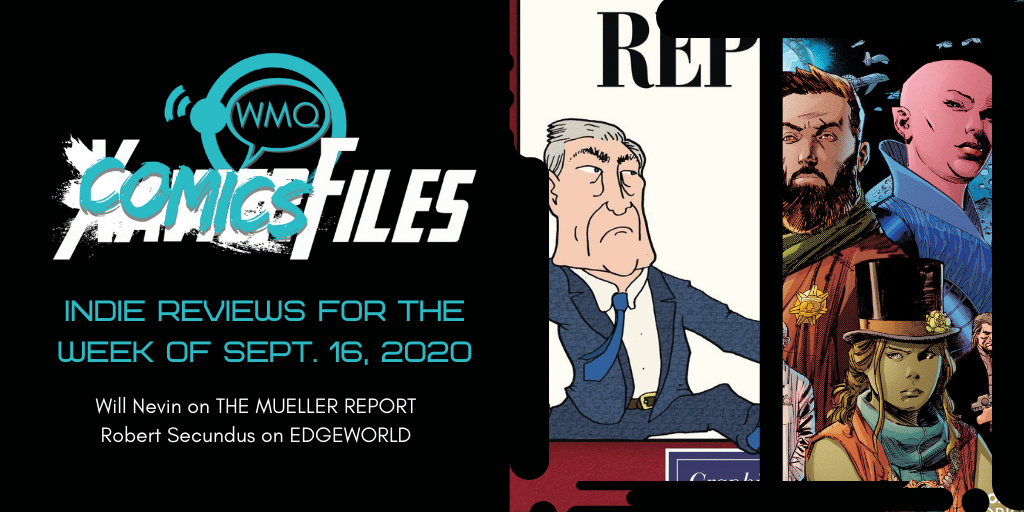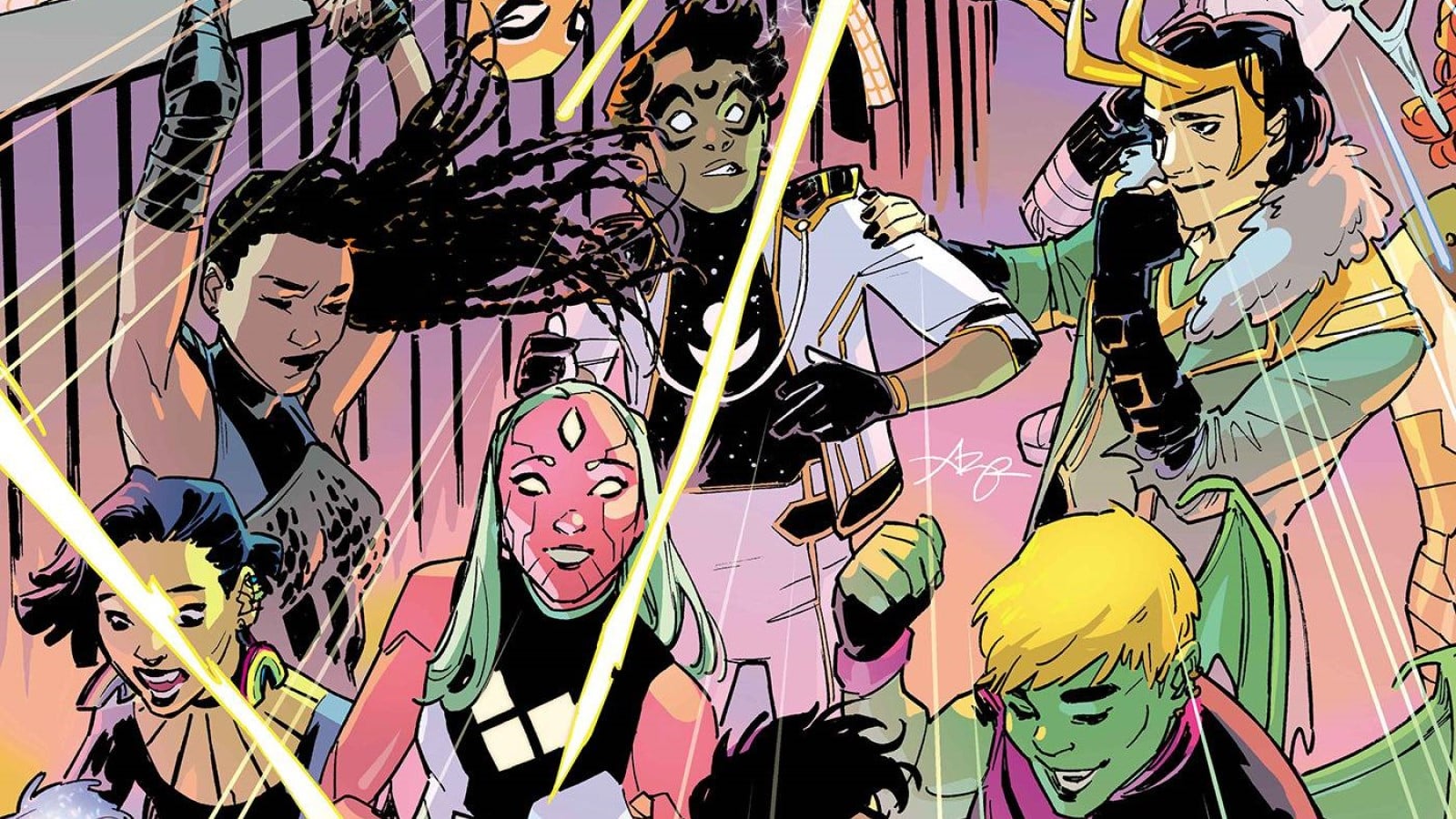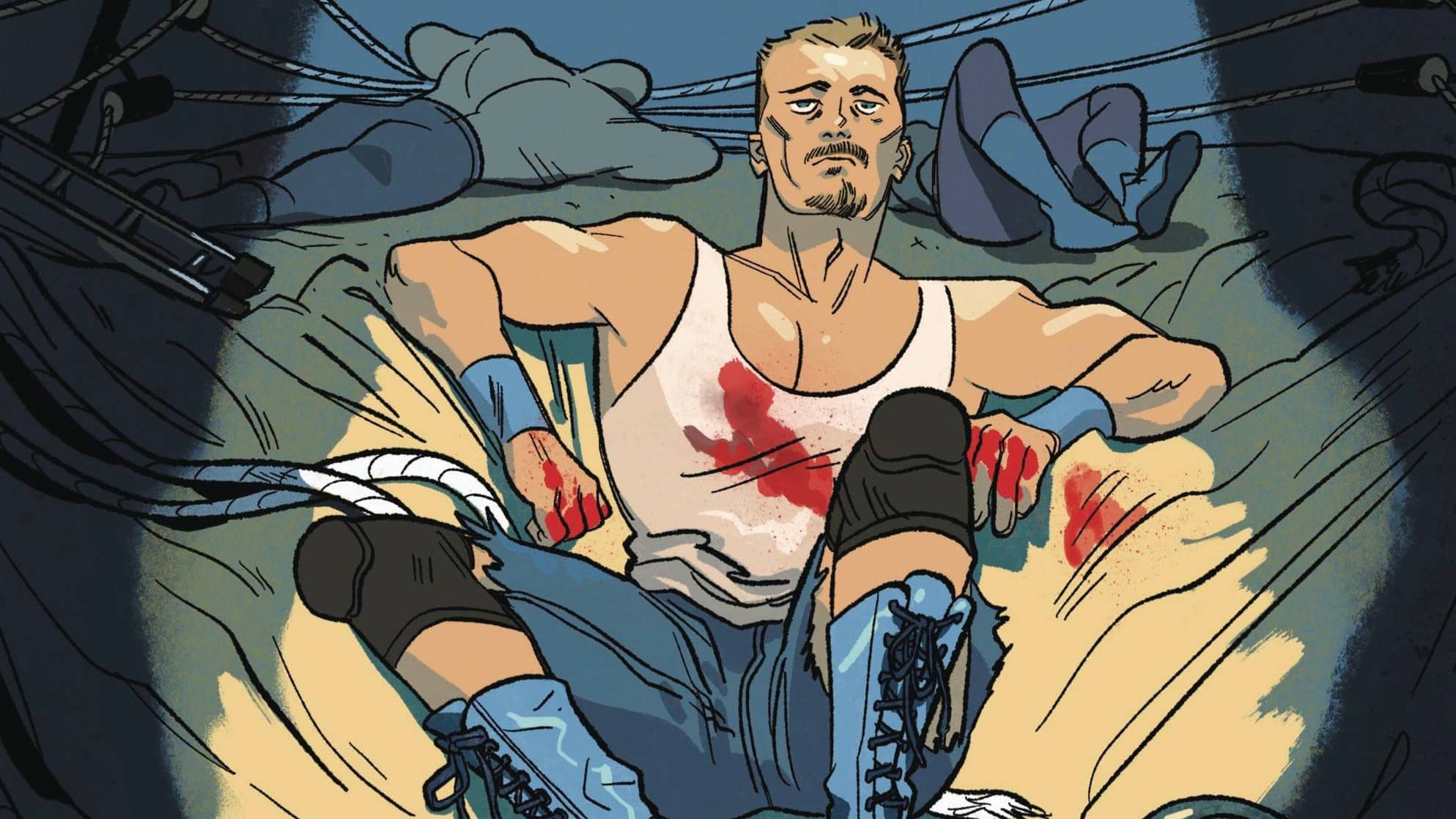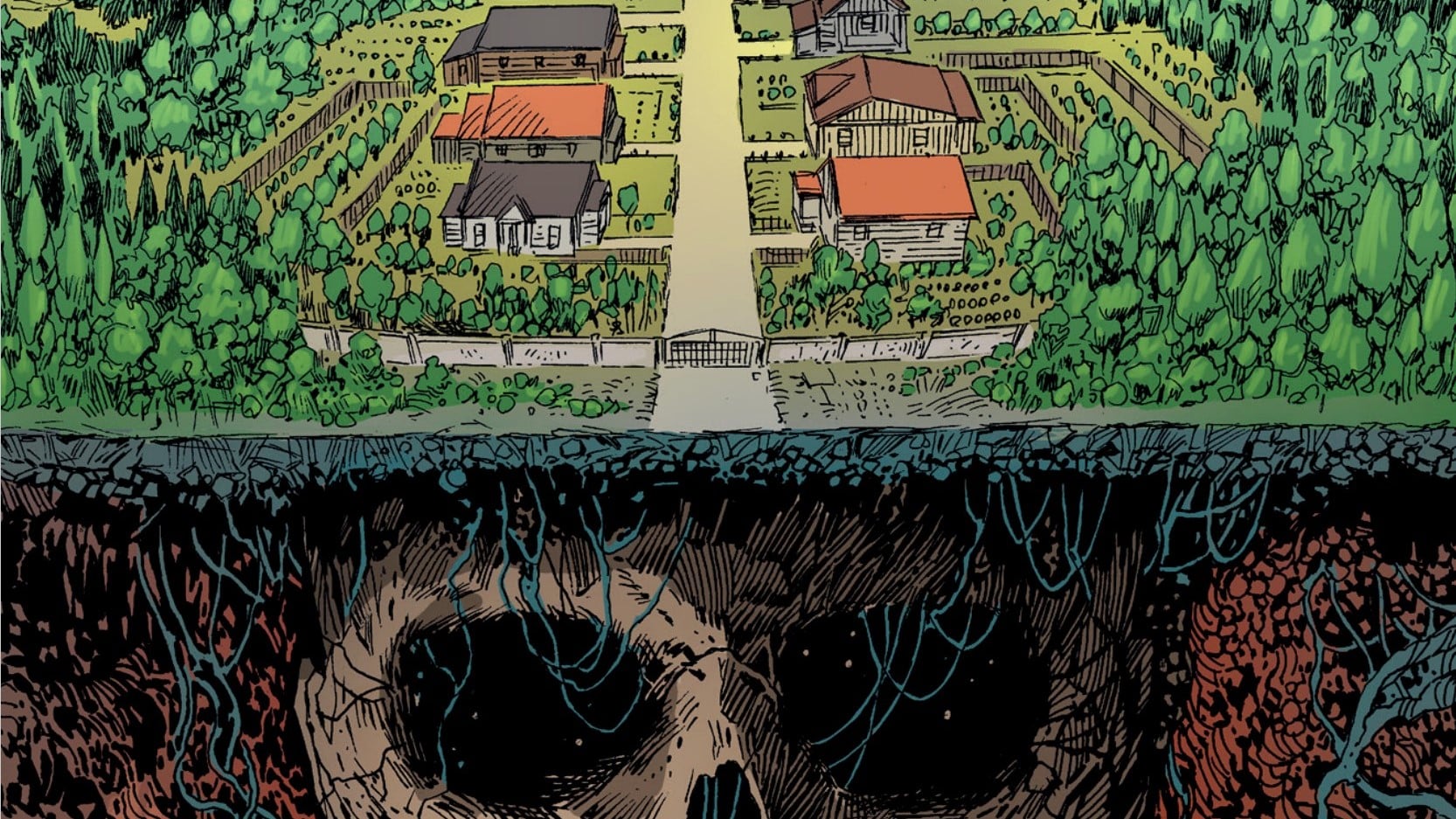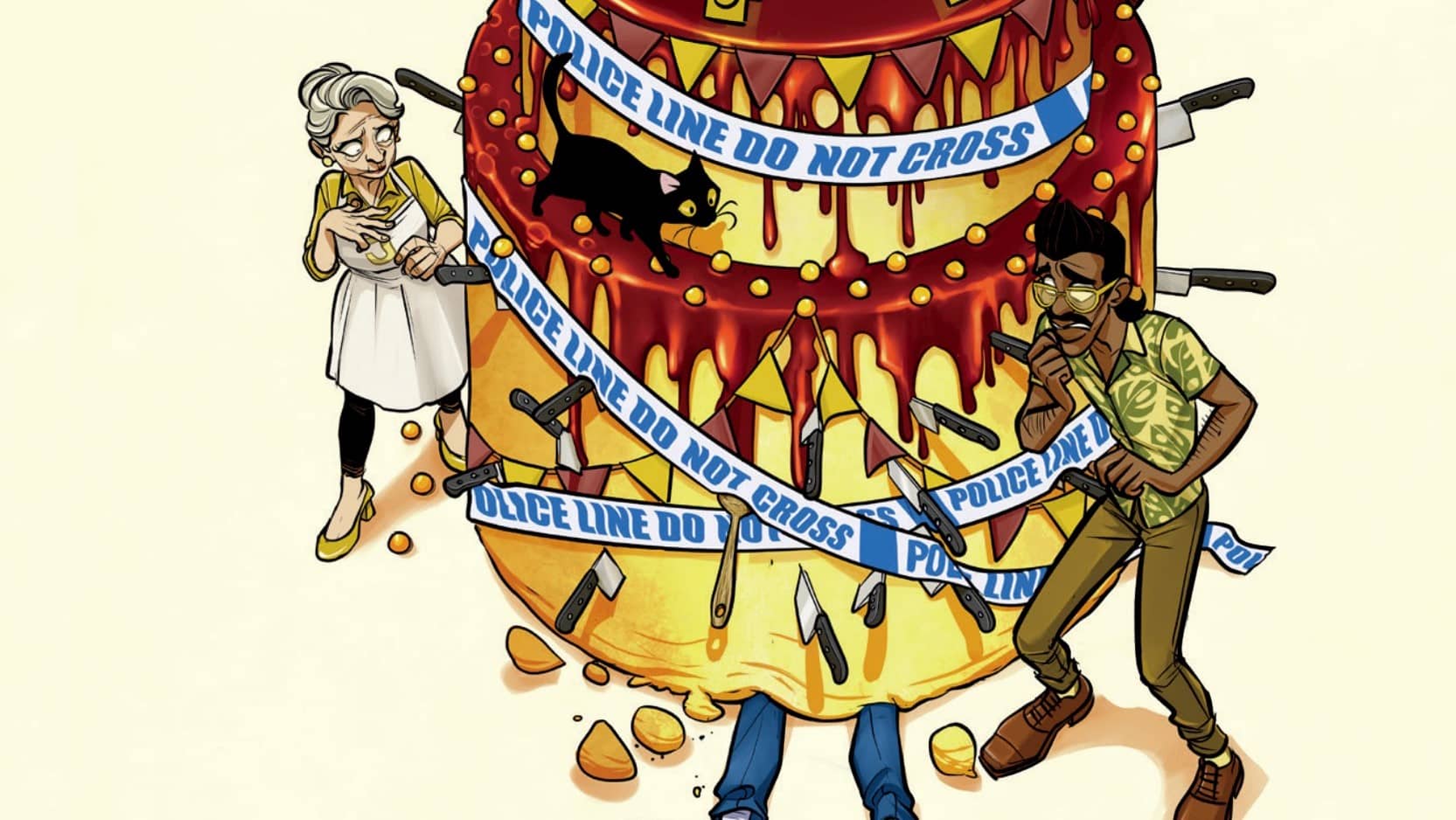They can’t all be winners. Find out why Will Nevin’s not mad, just disappointed in IDW’s Mueller Report Graphic Novel, and why Robert Secundus shrugged at the first issue of the comiXology original series Edgeworld.
The Mueller Report Graphic Novel
Written by Steve Duin and Shannon Wheeler, Illustrated by Shannon Wheeler, Published by IDW

Gary, a 76-year-old postal clerk, dies alone in a bleach-soaked hospital room, soaked in pus and awash in loneliness. (Don’t be too sad — it wasn’t coronavirus. Gary was enjoying some solo butt play that went sideways.)
He awakens in the afterlife and seeks out his creator.
“God,” Gary says after a trek to find the being responsible for all things known and unknown, “so much of my life felt empty. Without purpose. I had no family, and no one loved me. Can you tell me if my life had meaning? Why was I born? Can…can you at least give me that, God?”
God smiles.
“My son, none of my children are without purpose. Everyone born — all who take a breath — have a reason for being. You were no different.”
“Lord…did I do what I was meant to do? Did my life mean anything?”
“Do you remember your friend Rich? The one you lost touch with?”
Gary nods.
“Before your paths in life diverged, you were there for him in a time of great need. Without you, he would have been lost. Gary, my son, you touched his life and shaped it for the better in a way that no one else could. That was your purpose — to help Rich to become the very best version of himself.”
Gary, stunned, thinks about all the emptiness, the lost years, the nothingness, the stinging fact that he hadn’t thought about Rich in years. But for the first time, it feels almost worth it.
“I don’t know what to say, God,” Gary says after a long pause. “I always wish we had stayed in touch — I definitely didn’t know I was so important. Can you tell me anything else? How specifically did I make a difference for him?”
“Do you remember when the two of you would go to the Buffalo Wild Wings in Toledo a few times a week?”
Gary nods once more, slowly.
“There was one night when he really wanted to try the ‘Better-Be-Ready-Blazin’’ sauce, and you convinced him not to. And while it was mostly because you didn’t want the embarrassment of a server dressed as a fireman delivering your food, you were also afraid Rich might get ass-killing diarrhea. And you were right — had he ordered the ‘Better-Be-Ready-Blazin’’ basket of 12 hell-drenched wings, he would have spent most of the next day on the toilet and not gone out to the bar that night, which is where he met the woman who would become his wife. They had a beautiful life together, filled with children and travel and love — all because you saved him from hours of hot lava dookie.”
Civilizations raged and dimmed. Seas dried into ash and grit. Stars died. All in the moment it took Gary — now free and outside the mortal constraints of time — to comprehend what the creator said. While galaxies twirl, his body tenses. As dawn breaks on countless new worlds formed from the smallest bits of ageless space dust, the first heave catches in his now incorporeal gut. And as a newly expanded red giant bakes everything he ever knew into a blackened cinder, the first tears burst from his delft blue eyes.
“…That was all, God?” Gary asks through a pattering of tears. “That one night at Buffalo Wild Wings was my only reason for existing? The only reason I was even born?”
“Indeed, my son. Be proud of the lives you touched through Rich and his children and his children’s children.”
Sorrow rises to consume Gary.
“But God,” he screams, “that was 30 years ago.”
“Huh. I guess I hadn’t looked at it that way.”
***

Being without purpose is a languishing, miserable thing, and “The Mueller Report Graphic Novel” simply has no reason to exist. It’s 200 pages of political cartoons desperately searching for a raison d’etre, the best of liberal intentions and angst coming together to amount to approximately nothing. I didn’t hate it. But I’m looking forward to never thinking about it again.
The annoyances come fast and hard from the opening pages, beginning with a dedication to Mueller “for his patience and perseverance.” Coupled with the solicit’s touting of “a lone lawman standing proud against the wave of crime,” the hero worship is enough to give you the pukes. Mueller is also centered as a character, acting as an ever-present narrator who walks us through the book and thoroughly wears out his welcome.
Outside of the fawning, research seems to be deployed in strange ways (why cite Vox and New York Times pieces if this is an adaptation of Mueller’s work?) and the writing is far too imprecise (former acting Attorney General Sally Yates, for example, is cited as “refusing to enforce Trump’s Muslim ban” when that’s a such a goofy oversimplification).
The only remarkable thing about this book was its ability to make me feel something for truly loathsome people. The cruel caricature of Sarah Huckabee Sanders — the only one in which the art seemed to dehumanize her — made me sad, and being sad for her (a disingenuous woman paid a great deal of money to lie to the American people) makes me sad for me. A dig at Julian Assange (“I expose others’ emails,” he’s captioned as saying, “but I hide mine.”) makes me wish for better jokes and the dank pit of a prison cell for Assange.
Everything here should be better. Yes, the nation should not be run by grifters and morons — I know that already, thank you — but this should be either a straightforward adaptation of the Mueller Report or something far funnier and/or biting. It is ultimately neither and therefore depressingly pointless.
If you’ve been paying attention the last four years, you’re upset. If you’re upset, you don’t need this book, even as it tries to bolster your upsetness while not giving you any particular worthwhile insights into some gumshoe apparently deserving of our worship and his work.
And if you’re not upset, can you even read?
Watch Maddow highlights on YouTube. Or, even better, make sure you’re ready to vote by November. Or maybe just scream into the void.
Do something with a purpose — which means almost anything aside from reading this book.
Edgeworld #1
Writer: Chuck Austen, Artist: Pat Olliffe, Colorist: Lee Loughridge, Letterer/Designer: Jodi Wynne, Publisher: comiXology

When Chuck Austen’s return to comics was announced, two possible stories began to coalesce. The first, the easiest story to write: “Notorious writer of some of the worst comics of our modern age returns to the medium with trash! In this piece, we will annihilate this garbage comic!” The second, nearly as easy a take: “Austen: REDEEMED! After working on a number of brilliant, widely acclaimed animated properties, Austen has returned to comics triumphant; this is not the Austen of “Holy War,” but the Austen of Steven Universe, and we are delighted to announce his arrival.”
But Edgeworld #1 doesn’t serve either narrative.
Edgeworld #1 doesn’t serve much of any narrative. There’s just not enough there yet. Though it’s a comiXology Original, it, bizarrely, sticks to the pagecount of a typical Direct Market print comic, and that is simply not enough space for Austen to even begin what seems to be a sprawling story that takes place across ages, cultures, planets and, possibly, universes. We are introduced to the setting in its full scope, introduced to the characters of a frame narrative, and then enter a vision of the past that finally introduces us to, presumably, the actual protagonist of this comic.
We follow that protagonist for a while as he navigates the culture he, ostensibly, has sworn to serve and protect (but likely, ultimately, helps subjugate); he chats with friends, patrols, picks up on the fringes of a mystery, engages in carnal embrace, experiences the only example of tank-induced coitus interruptus that I have witnessed in fiction, and executes men he deems guilty of criminality while pantsless.
GIven that list you can probably tell that while I don’t know if Edgeworld is good, and I don’t know if it’s bad, I do think it is as loudly weird as the worst Chuck Austen comics are, and I think Olliffe, Loughridge and Wynne together depict an intriguingly complex sci-fi setting. I hope that the narrative which moves through that setting lives up to its potential.
It’s going to be a bit before we can say.

